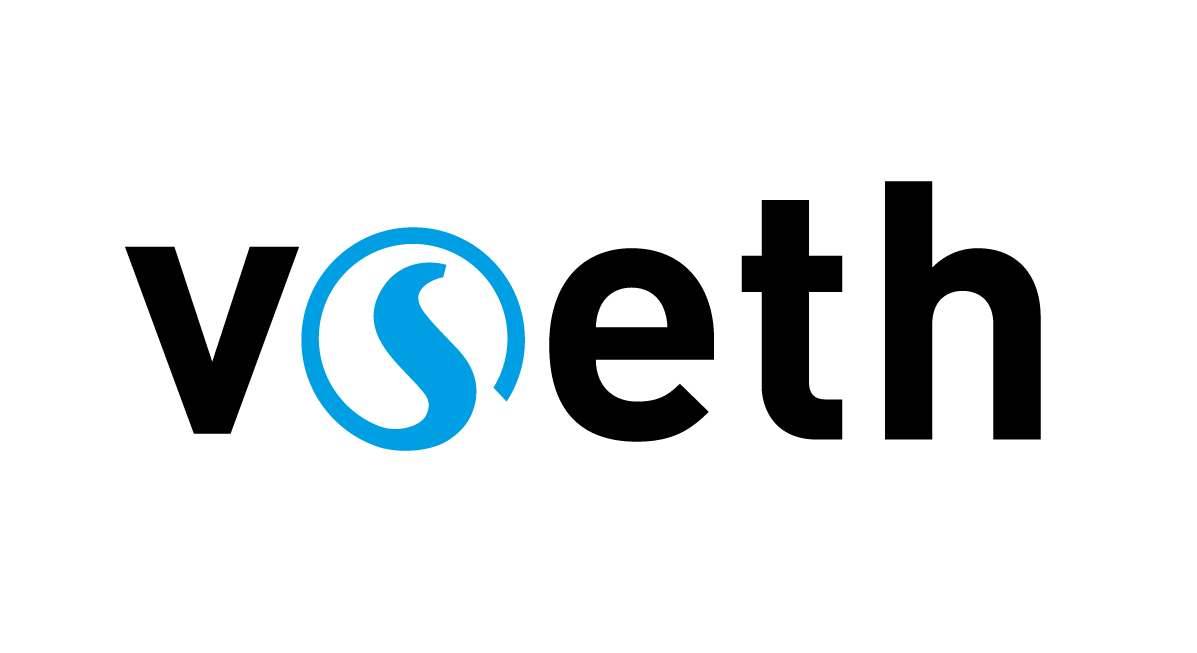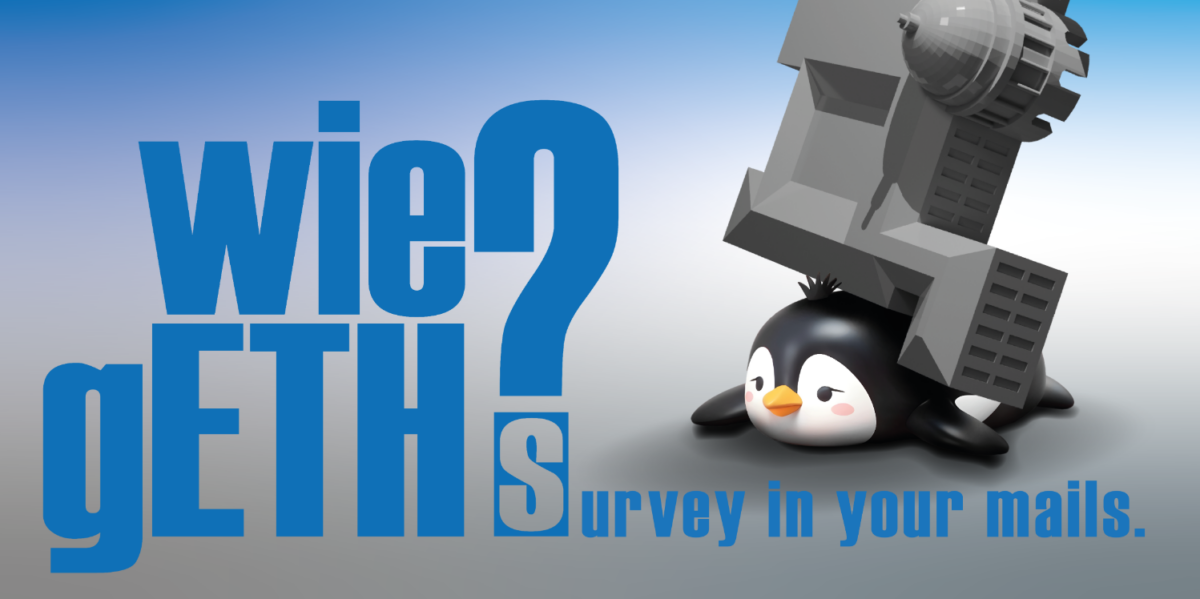A total of 10,823 people completed the survey. This corresponds to 40.8% of all respondents. Thank you very much for your participation. We have managed to get a representative picture of the stakeholders at ETH. More on page 27 😉
VSETH organised its own survey called ‘wiegETHs’ for the first time in the spring semester of 2019 to get a better overview of the mental health and concerns of students at ETH. The responses provided important insights into the well-being of students and helped the VSETH to advocate more specifically for students’ concerns. From 18 March 2019 to 2 April 2019, 6,400 students completed the survey. This corresponded to 42.2% of all Bachelor’s and Master’s students at ETH Zurich. The second round of the survey was conducted from 10 April 2024 to 10 May 2024. This time together with AVETH (the representation of the mid-level academic staff) in order to open the new edition of ‘wiegETHs’ to PhD students, postdocs, senior scientists and scientific staff at ETH.
Preliminary Report
The time has finally come! Here is the interim report of the wiegETHs survey. The aim of the report is to give you a rough overview of the data and to show the data on an institutional level. In other words, we compare the data ETH wide.
The next steps:
With the publication of the report, we now have the opportunity to analyse the data in detail. Specifically, we will now look at the following topics: Mental health of students, workload of studies, DDI (Discomfort, Discrimination and Inappropriate behaviour) and then of course programme & department specific topics. The AVETH will deal with the areas of mental health of mid-level faculty, salary and supervision. In the coming year, separate reports will be published on these topics, with AVETH and VSETH working together in some areas. The data will also be discussed with various ETH offices and organisations that are active in the field of mental health and diversity in the university context. This enables us to set up measures and projects that address shortcomings and make the existing infrastructure more accessible.
Survey
Such a survey has immense value not only for the work of VSETH and AVETH in the future but also for many other stakeholders at ETH Zurich. Through the data collected by the survey, ETH Zurich and its associated sub-units such as departments can address the specific needs of the two largest member groups at ETH Zurich. Furthermore, it enables all parties to shape the future development of ETH Zurich.
What are the benefits of such a survey?
Such a survey has immense value not only for the work of VSETH and AVETH for the future, but also for many other stakeholders at ETH Zurich. Through the data collected by the survey, ETH Zurich and its associated sub-units such as departments can address the specific needs of the two largest member groups at ETH Zurich. In addition, it enables all parties to shape the future development of ETH Zurich on a better basis.
What has changed because of the 2019 wiegETHs survey?
WiegETHs 2019 has initiated and facilitated a number of issues at ETH. These include, among others:
Better safety and prevention measures at events
Since events are an integral part of the culture at ETH, but undesirable incidents happen here time and again, a working group was set up to look into safety measures for different types of events. In addition, many of the organizing committees of major events now include awareness persons who design safety measures for the respective event.
Changes to the study regulations
Until recently, all examinations in the Department of Chemistry were written in the summer after the second year. This created a heavy workload for students in the summer. Now, the first part of the exams is taken in winter, which reduces the workload in summer and ensures that students receive feedback earlier and learn to assess their strengths and weaknesses without having 13 exams simultaneously.
More Peer Mentoring Programmes
In several study feels peer mentoring was introduced. The idea here is that a student from a higher semester helps a student from the firs semesters to find their way around campus life. This is especially important for students who are new to the university context and is also a great help to give students a role model.
Evidence for projects such as PAKETH
PAKETH is the huge restructuring project of the academic calendar that is coming in 2027. The idea of this new structure is t give students more freedom in the structure of their studies (yes, holidays too). WieETHs 2019 showed that such an increase in flexibility is a big desire for many students so the data from the last survey massively helps to promote the discussions about the new academic calendar.
…and much more!
For more initiatives, see the measures taken after wiegETHs 2019
Is my data secure?
The dispatch, data recording and initial analysis are carried out by an official survey institute, the JRC Zurich. Anonymity is one hundred per cent guaranteed and is subject to the highest security precautions in accordance with Swiss data protection law. The data is stored on local servers in Switzerland and does not contain any information that can be directly traced back to individuals. The anonymisation and initial evaluation of the results is carried out by JRC Zurich. The anonymised data, which cannot be traced back to individuals, can then only be viewed and analysed by delegates of the VSETH and the AVETH who have been specially appointed to compile reports on the student body and academic staff of ETH Zurich. These delegates must sign a confidentiality agreement before accessing the anonymised data. The raw data will not be passed on to third parties (including ETH Zurich).
What is the opinion of ETH and the rector’s office about wiegETHs?
The Rectorate and the management of ETH Zurich support the survey. During the preparation of the survey, we were in contact with official ETH offices on several occasions in order to incorporate any feedback from them into the survey.

